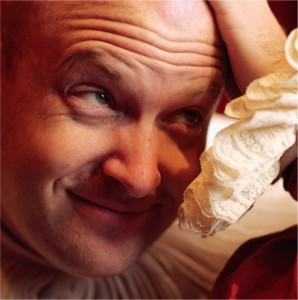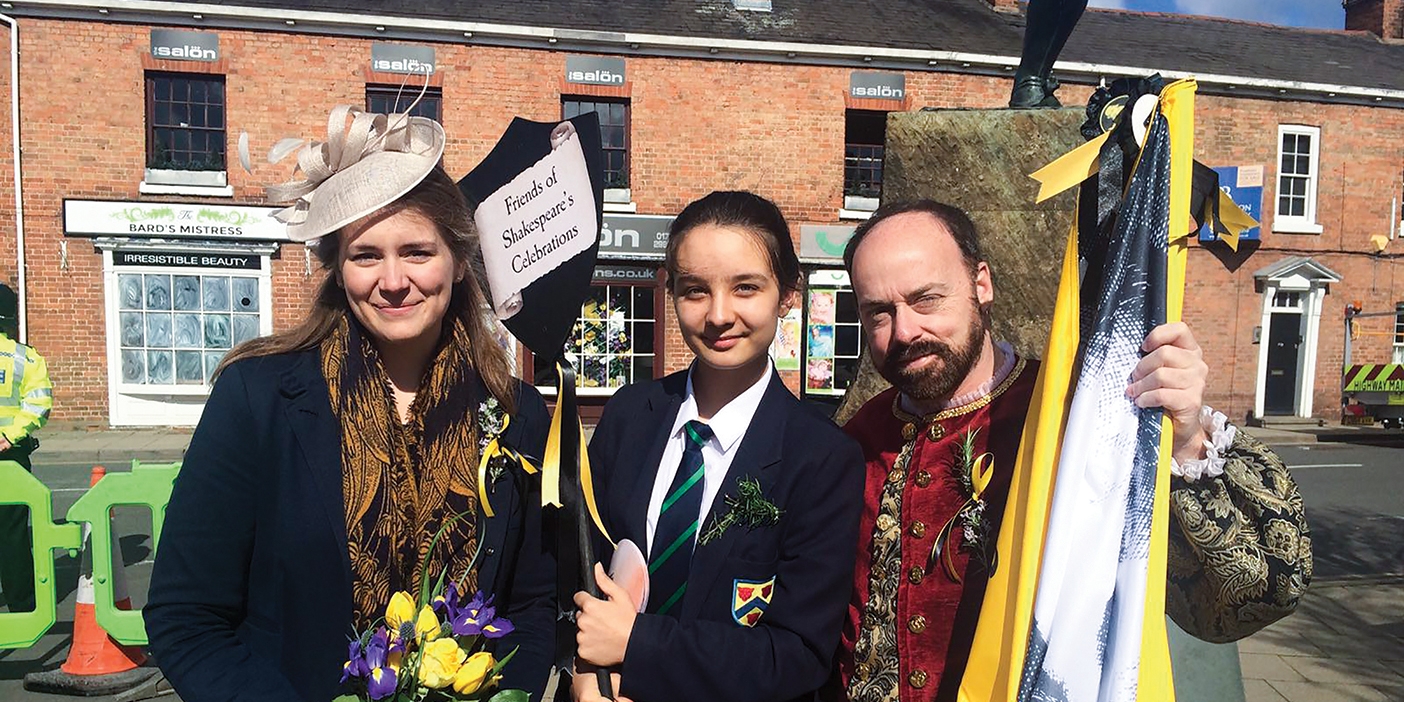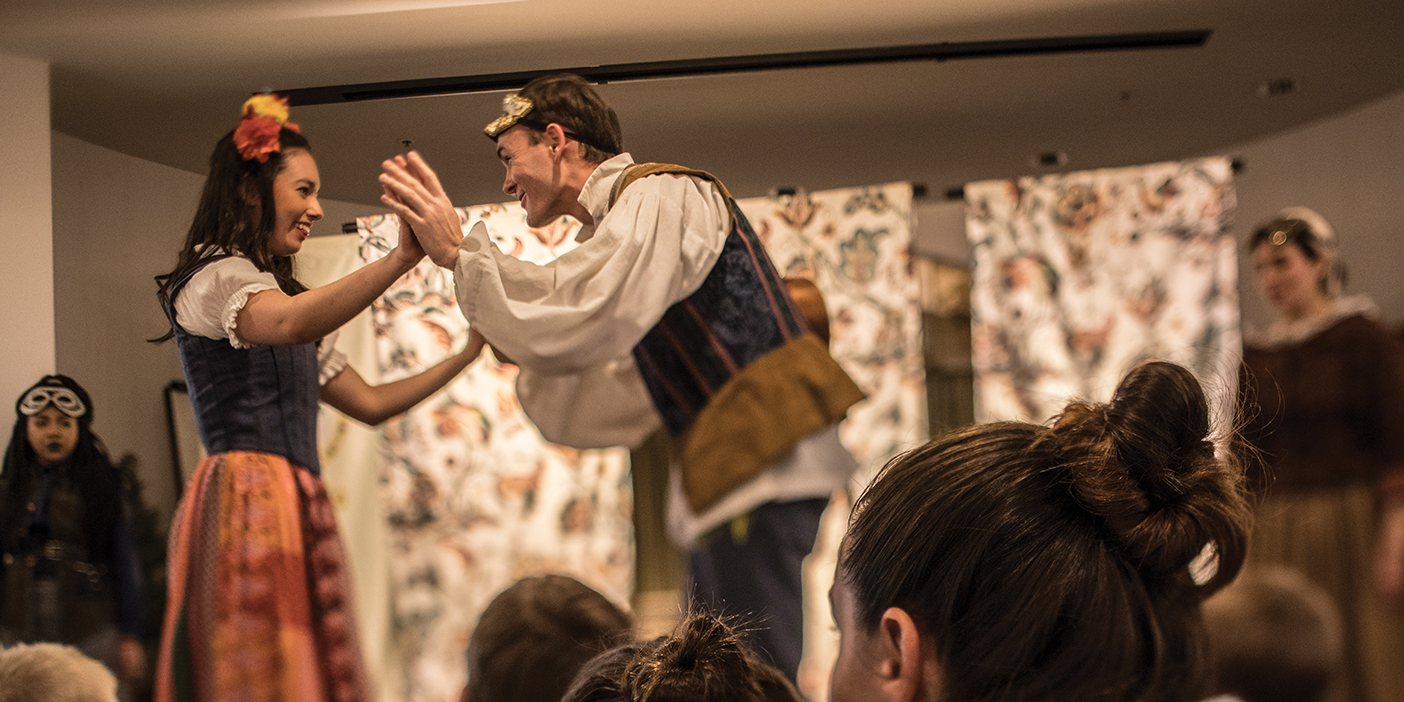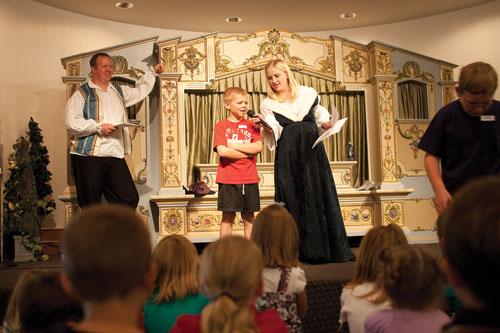A doctoral student bequeaths his love for Shakespeare to young students.

“I’d actually make up excuses to not hang out with my friends because I wanted to read Shakespeare plays.” – Christopher Clark
No whispering to your neighbor and no hall passes to the bathroom. William Shakespeare’s Twelfth Night is about to unfold.
The silliness of the sword fight makes you clasp your belly in laughter, and the kissing scene—it makes you squirm in every direction and wonder out loud to your best friend in the whole world, who’s sitting next to you, how much longer they could possibly press their lips together.
The best part could quite possibly be the princess dresses in this land they call Illyria. But ask Christopher L. Clark (BA ’00), director of BYU’s Young Company Shakespeare Troupe, and he’ll tell you it’s that elementary students are actually viewing Shakespeare well before high school.
“If we introduce Shakespeare to kids sooner, they don’t grow up with the notion that it’s boring,” says Clark. His troupe of actors pile into a van every Tuesday, packing costumes, sets, and musical instruments under their feet to take Shakespeare’s greatest works to as many as 35 elementary and middle schools per semester.
It’s a boisterous van ride, with nine thespians jabbering and painting rosy cheeks and mustaches all the way to schools as far as Layton and St. George, Utah.
“We show up to perform in cafeterias where you can still smell the tater tots in the air,” Clark says. “But we tell stories that take children into the forest, across the ocean, into a magical kingdom.”
These jaunts to mythical locales reap tangible benefits in the classroom, according to Clark, who is pursuing a doctorate of education focused on using theater in the elementary school classroom. His mission is to preempt the typical first reading of Shakespeare—the one about the two star-crossed lovers, read out loud in high school—with what the famous playwright intended: performance.
And the Young Company pulls it off without changing a word of antiquated text—the thees and thous remain.
“We recognize that second graders may not understand all the language,” Clark says, “but they understand a lot more than we think.”
Talk to kids about bullying, Clark says, and then watch Tybalt push people around in Romeo and Juliet. Talk about the loss of a parent through divorce, then relate Hamlet’s struggles.
“It can be very therapeutic,” Clark says. “We can use Shakespeare to teach kids about human behavior.”
There is no better source on the subject, according to Clark, who became enthralled with Shakespeare as a child. By the time he was 16, not even his friends could pry him away.
“I’d actually make up excuses to not hang out with them because I wanted to read Shakespeare plays,” Clark says. Fast forward through his English undergraduate at BYU, an MFA in directing Shakespeare from the University of Exeter, and performance training at Shakespeare’s Globe Theatre in London, and he’s now a bona fide Shakespearean master.
Upon his return to the States, he yearned to teach, making a doctorate in education ideal.
“I jumped at it,” says Clark, who teaches full-time at Utah Valley State College while directing productions at both BYU and UVSC, squeezing that dissertation at BYU in on the side. He’s been involved with the Young Company since 2001.
This fall, King Lear will be the 10th Shakespearean play the Young Company has taken to elementary schools, filled with the usual things that excite the average 8-year-old—you know, sibling rivalry, disguises, an open wilderness, and an abandoned king.
It’s enough to make even recess seem dull.









